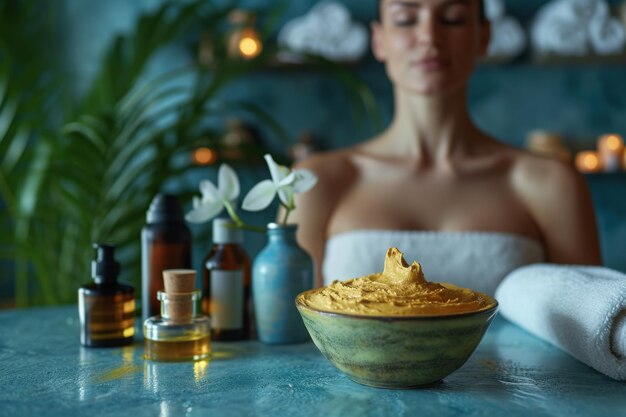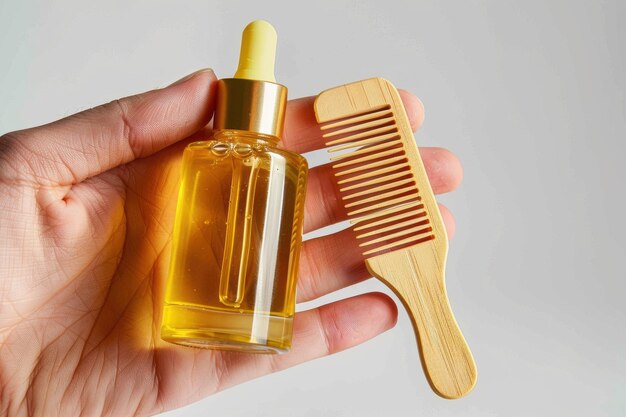Visora Oil – A Natural Ayurvedic Remedy for Healthy Skin and Hair

Introduction to Visora Oil
Visora Oil is a traditional Ayurvedic formulation that has been used for centuries to promote skin and hair health. Known for its detoxifying and healing properties, Visora Oil is made from a blend of potent herbs and natural oils. This oil works to nourish the skin, improve blood circulation, and restore the natural balance of the scalp and hair. With regular use, Visora Oil helps to combat skin conditions, reduce inflammation, and stimulate hair growth, making it a vital part of any Ayurvedic wellness regimen.
Don't wait or self medicate. Start chat with Doctor NOW
Historical Roots & Ayurvedic Significance
Visora Oil is deeply rooted in Ayurvedic traditions, where it is revered for its ability to treat various skin and hair conditions. Ayurveda, the ancient system of natural healing, highlights the importance of maintaining harmony in the body’s doshas, and Visora Oil is designed to help restore this balance. Ancient texts describe the oil as being useful for detoxifying the skin and improving circulation, which can lead to healthier, clearer skin and stronger hair. It has been trusted for generations as a natural remedy for both external and internal health concerns.
Key Components & Therapeutic Benefits
1. Herbal Composition
Visora Oil is created by blending several powerful Ayurvedic herbs, each chosen for its unique therapeutic properties:
- Neem (Azadirachta indica): Known for its antibacterial and antifungal properties, neem helps to cleanse the skin and prevent infections.
- Brahmi (Bacopa monnieri): A well-known herb for improving mental clarity and reducing stress, Brahmi also supports healthy hair growth.
- Amla (Emblica officinalis): Rich in Vitamin C, Amla rejuvenates the skin and strengthens hair follicles.
- Bhringraj (Eclipta alba): This herb is known for promoting hair growth and enhancing skin texture, helping to reduce wrinkles and fine lines.
2. Skin Health & Detoxification
Visora Oil is particularly effective in purifying the skin. Its herbal ingredients work together to detoxify the skin, remove impurities, and improve complexion. The oil's ability to balance Pitta dosha helps to calm inflammatory conditions like acne, eczema, and psoriasis. Additionally, it helps to reduce excess oil production, ensuring that the skin remains hydrated and balanced.
3. Hair Care & Strengthening
Visora Oil is widely used to enhance hair health. The nourishing properties of its ingredients stimulate hair follicles, improving hair growth and preventing premature greying. Regular use can help combat dandruff, dry scalp, and hair thinning, promoting stronger, healthier hair. The oil also supports overall scalp health by improving blood circulation, which leads to better nutrient delivery to the hair roots.
4. Holistic Healing & Dosha Balance
Visora Oil is not only beneficial for the skin and hair but also supports overall health by balancing the doshas in the body. The oil’s detoxifying properties help clear toxins from the body, which is essential for maintaining proper doshic balance. It is often used as part of Ayurvedic treatments like Abhyanga (oil massage) and Swedana (herbal steam therapy) to enhance overall wellness and rejuvenation.
How Visora Oil Works: The Science Behind the Oil
The active compounds in Visora Oil stimulate the circulation of blood in the scalp, encouraging the delivery of vital nutrients to hair follicles. The antimicrobial properties of its herbal ingredients help to fight off infections and inflammations that can damage the skin and hair. In addition to its detoxifying action, Visora Oil provides deep nourishment, promoting the regeneration of skin cells and the strengthening of hair roots. This multi-faceted approach makes it an effective remedy for both skin conditions and hair health.
Choosing the Right Visora Oil & Guidance
When selecting Visora Oil, consider the following:
- Consult a Qualified Ayurvedic Practitioner: Personalized advice ensures that the oil suits your skin and hair type and addresses your specific health needs.
- Opt for Organic and Pure Formulations: Choose oils made from high-quality herbs to ensure maximum effectiveness and safety.
- Source from Reputable Vendors: Purchase Visora Oil from trusted Ayurvedic pharmacies or certified practitioners to guarantee authenticity.
Recommended Dosage & How to Use Visora Oil
The recommended dosage and usage of Visora Oil depend on the specific health condition being treated:
- For Skin Care: Apply a small amount of Visora Oil directly to the skin, massaging gently. It can be used once or twice daily.
- For Hair Care: Massage Visora Oil into the scalp and hair. Leave it on for at least 30 minutes before washing it off. It can be used 2-3 times per week.
- Enhancing Absorption: For optimal results, warm the oil slightly before use and combine it with other Ayurvedic treatments, such as Abhyanga massage.
Potential Side Effects & Precautions
Visora Oil is generally safe when used as directed, but it’s essential to follow some precautions:
- Skin Sensitivity: Conduct a patch test before full application to avoid potential allergic reactions.
- Pregnancy & Nursing: Pregnant or nursing women should consult with an Ayurvedic practitioner before using Visora Oil.
- Start with a Small Amount: Begin with a small quantity to observe how your skin and hair respond to the oil.
- Avoid Overuse: While the oil is beneficial, excessive application can cause clogged pores or scalp irritation. Use in moderation.
Frequently Asked Questions For Visora Oil
How does Visora Oil benefit the skin?
Visora Oil helps detoxify the skin by removing impurities, reducing inflammation, and promoting a clearer complexion. It balances the Pitta dosha, which is key in addressing skin conditions like acne, eczema, and dryness.
Can Visora Oil improve hair growth?
Yes, Visora Oil stimulates hair follicles and improves blood circulation to the scalp, which can promote hair growth and strengthen hair. It is especially beneficial for people with thinning hair or scalp conditions.
How often should Visora Oil be used for hair care?
For optimal results, Visora Oil can be massaged into the scalp 2-3 times per week. Leave it on for 30 minutes before washing it off with a mild shampoo.
Can Visora Oil be used with other Ayurvedic treatments?
Yes, Visora Oil can be effectively combined with other Ayurvedic treatments such as Panchakarma therapies, Abhyangamassage, and Swedana. These treatments work synergistically to enhance the oil's benefits.
Are there any side effects of using Visora Oil?
Visora Oil is generally safe, but some individuals may experience mild irritation or allergic reactions. It’s essential to conduct a patch test before full application and consult with a practitioner if you have specific health concerns.
How long does it take to see results from Visora Oil?
Results vary depending on individual skin and hair conditions, but with consistent use, you may begin to notice improvements in skin texture and hair health within a few weeks.
Where can I purchase authentic Visora Oil?
Authentic Visora Oil can be purchased from reputable Ayurvedic pharmacies, certified Ayurvedic practitioners, or trusted online stores specializing in Ayurvedic products. Always verify the quality and authenticity of the oil before purchasing.
Conclusion & Expert Insights
Visora Oil is an invaluable Ayurvedic remedy for promoting healthy skin and hair. Its holistic approach to healing, detoxifying, and nourishing makes it an essential addition to any wellness routine. By incorporating Visora Oil into your daily regimen, you can experience the benefits of balanced doshas, clearer skin, and stronger, healthier hair. As always, consulting with an Ayurvedic practitioner will help you tailor its use to your specific health needs.
References & Further Reading
- Sharma, P.V. (1995). Ayurvedic Healing: A Comprehensive Guide.
- Lad, V. (2002). Ayurveda: The Science of Self-Healing.
- National Institute of Ayurveda:
- Journal of Ayurveda and Integrative Medicine for research articles on herbal oil therapies.
Got any more questions?
Ask Ayurvedic doctor a question and get a consultation online on the problem of your concern in a free or paid mode.
More than 2,000 experienced doctors work and wait for your questions on our site and help users to solve their health problems every day.



